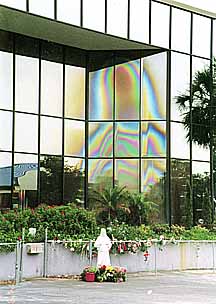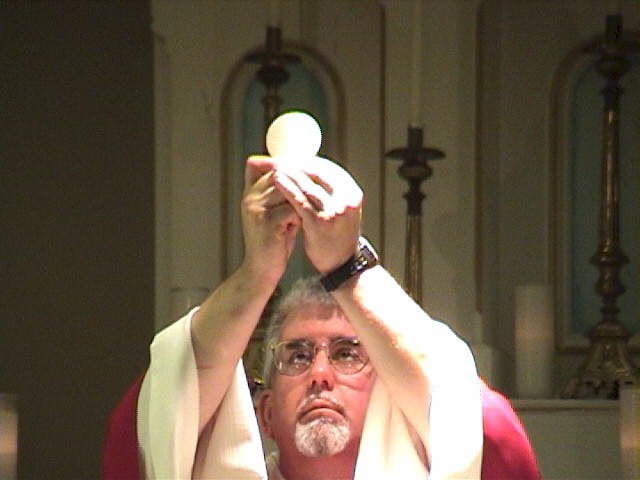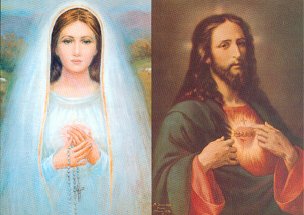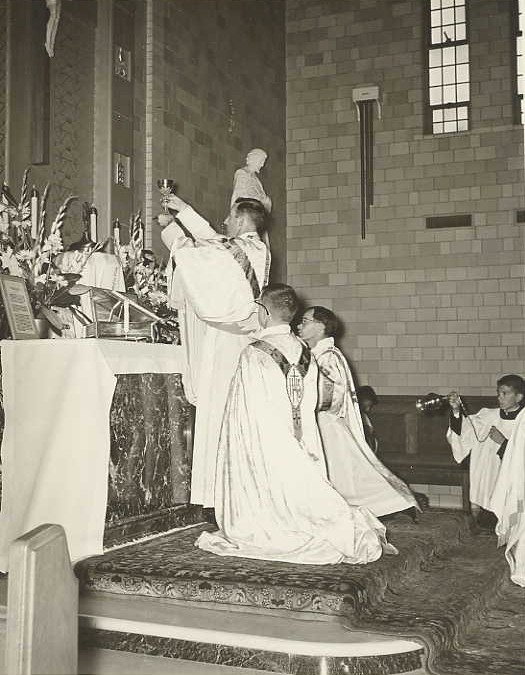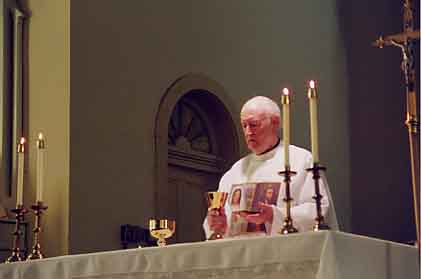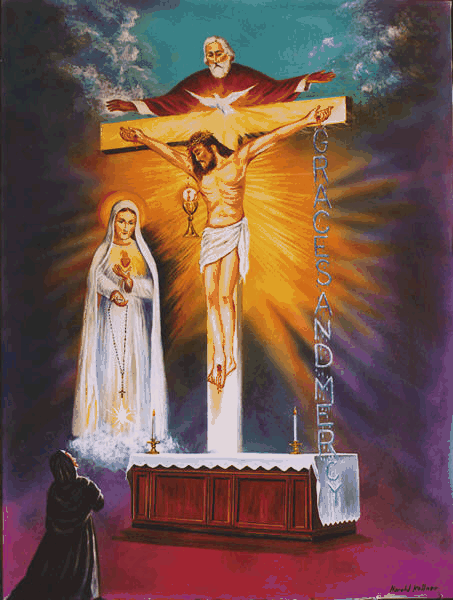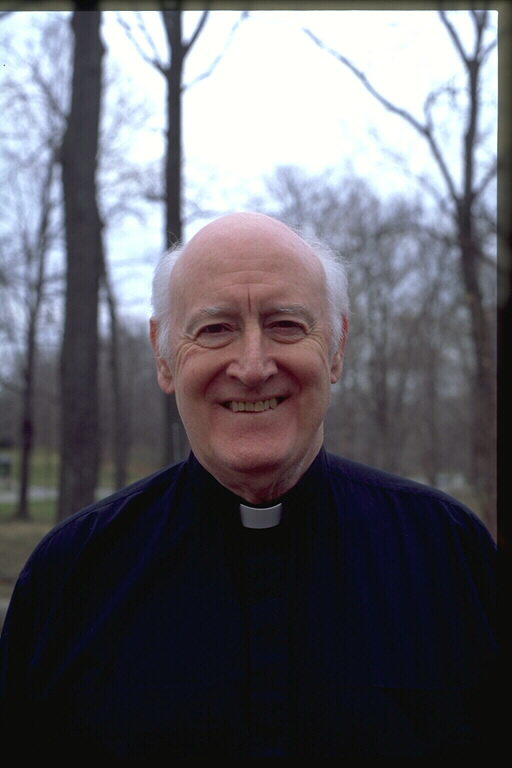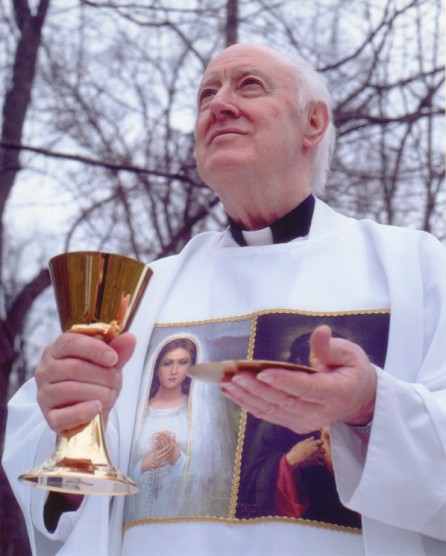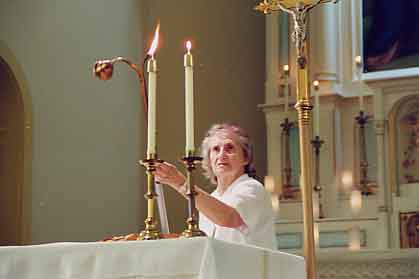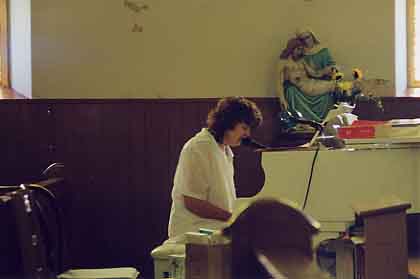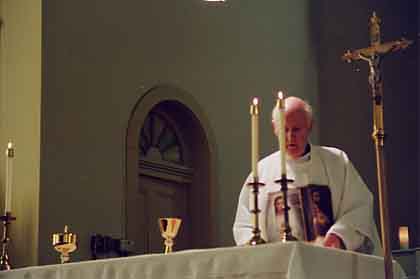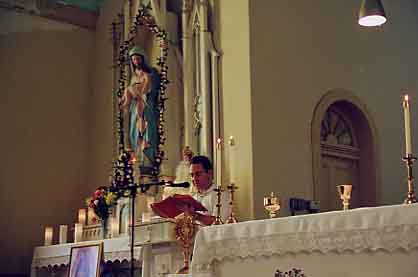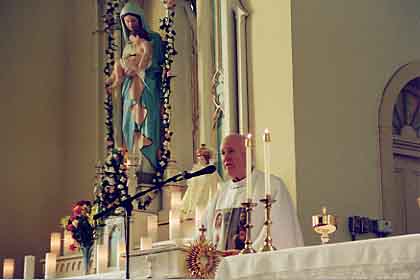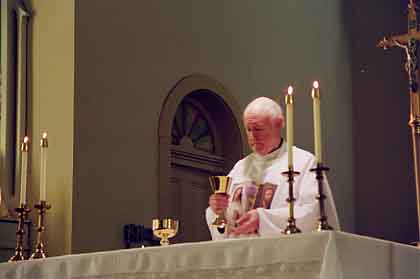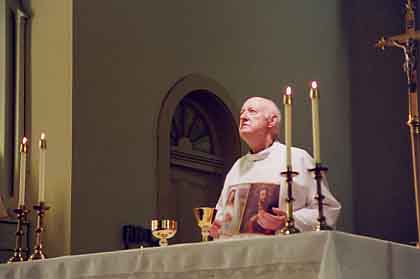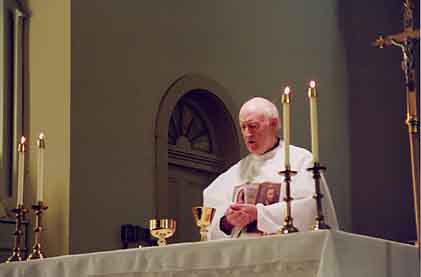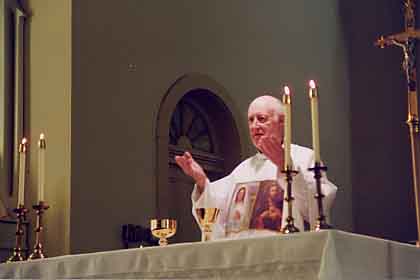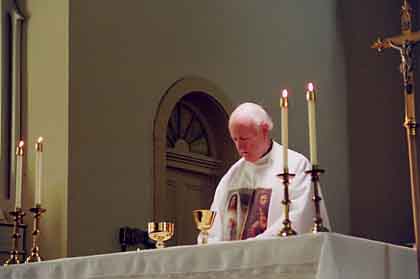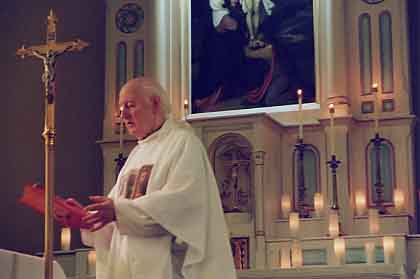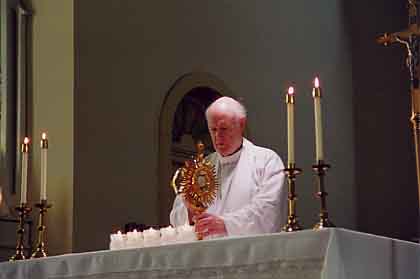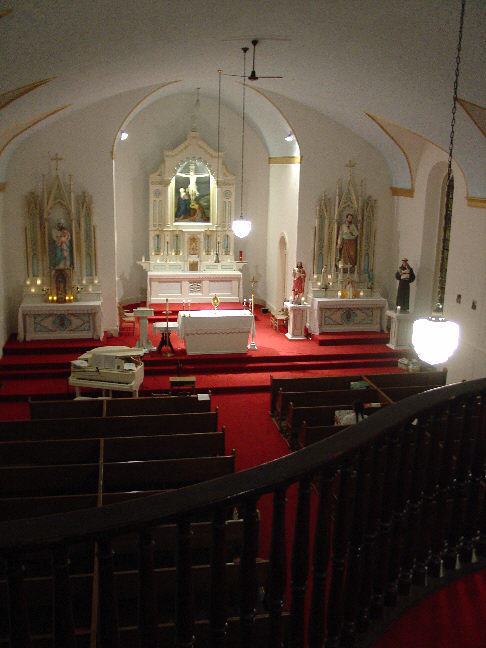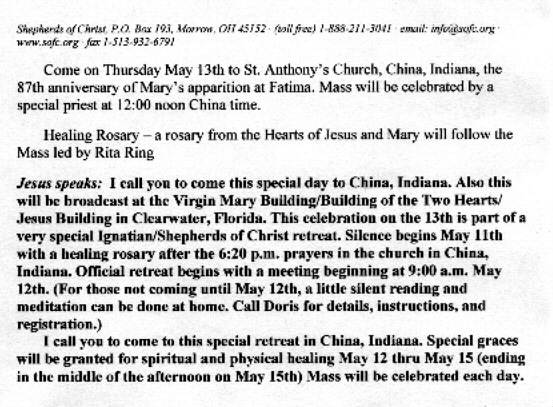The Christian life is rooted in the great event of the Incarnation. We
must consequently always focus our gaze upon Christ, realizing that
everything the Father wishes to tell us has been summed up in the life,
death, and resurrection of Jesus. It only remains for us, then, to strive
to understand with greater insight the inexhaustible truth of the Word
Incarnate: "In many and various ways God spoke of old to our
fathers by the prophets; but in these last days He has spoken to us by a
Son, Whom He appointed the heir of all things, through Whom also He
created the world." (Heb. 1: 1-2) (1)
What was the condition of the human race at the time of Christ's
coming? In some ways, people were much the same as we are today. There
were those just being born into this world of human drama. There were
those who, in death, were leaving it, some of whom had grasped but little
of life's meaning. There were those who were healthy and vigorous. There
were those who were sick and lame. Some especially felt the burdens, the
grief, the suffering of the human condition. Others were ebullient and
desired all the pleasures life could provide. There was some good being
accomplished. Immorality, however, was rampant. What St. Paul tells us
concerning the time that immediately followed Christ's existence certainly
could also be applied to the time of His entrance into the world. It is,
in short, an ugly picture that St. Paul depicts for us (Rom. 1: 22-32).
Into such a depraved condition Jesus entered, with a full and generous
Heart, to lead the human race from the depths of sinfulness to the vibrant
richness of a new life in Himself. Through His enfleshment, this Christ
became the focal point of all history. The authentic hopes and dreams of
the human family, now so overshadowed by the ugliness of sin, came
converging upon this Christ. He would gather them up in Himself, give them
a new luster and brilliance and dynamism, and would lead the human family
back to the Father in the Holy Spirit.
Christ was radically to release us from the dominion of sin and elevate
us to a new level of existence. This life Christ has given us is not a
type of superstructure which is erected atop human existence. Although
nature and grace are distinct, they do not lie side by side as separate
entities. Rather, grace permeates nature. The Christian is one graced
person. The Christian is one who has been raised up, caught up, into a
deeper form of life in Christ Jesus. Nothing that is authentically human
in the life of the Christian has been excluded from this new existence.
Whatever is really human in the life of the Christian is meant to be an
expression of the Christ-life. The simple but deep joys of family life,
the wonderment at nature's beauty, the warm embrace of a mother for her
child, the agony of crucial decision making, the success or frustration
that is experienced in one's work, the joy of being well received by
others, and the heartache of being misunderstood--all these experiences
are intended to be caught up in Christ and made more deeply human because
of Him.
Jesus has come, then, not to destroy anything that is authentically
human, but to perfect it by leading it to a graced fulfillment. This is
the meaning of the Word's becoming flesh, the meaning of the Incarnation.
The more God-like we become through Christ, the more human we become.
We, through our incorporation into Christ which occurs at Baptism, are
meant to relive the life, death, and resurrection of Jesus. In doing so,
we are not only accomplishing our own salvation, but we are assisting in
the salvation of others also. The Incarnation continues all the time.
Christ, of course, is the one Who fundamentally continues the Incarnation.
But He enlists our help. The world no longer sees Jesus, no longer is able
to reach out and touch Him. We are the ones who now, in some way, make
Christ visible and tangible. In union with the invisible, glorified
Christ, and depending on Him as our source of life, we continue the
Incarnation in its visible and temporal dimensions. This is our great
privilege. This is our great responsibility.
The Christian is initiated into the mystery of Christ, into his or her
role in prolonging the Incarnation, through Baptism. In the words of St.
Paul: "Do you not know that all of us who have been baptized into
Christ Jesus were baptized into His death? We were buried therefore with
Him by Baptism into death, so that as Christ was raised from the dead by
the glory of the Father, we too might walk in newness of life."
(Rom. 6: 3-4).
It is not sufficient, however, that we be incorporated into Christ
through Baptism. All forms of life require nourishment. So, too, our life
in Christ must be continually nourished. How can we continually keep in
contact with Christ? There are various ways. We contact Christ in a most
special way through the liturgy, above all in the Eucharistic liturgy.
Here the entire course of salvation history, as centered in Jesus, is
sacramentally renewed and continued. Through our most special and most
personal meeting with Jesus in the Mass, we are more deeply incorporated
into Christ. Also, we should remember that all the sacraments make up part
of the Church's liturgy.
The reading of Scripture provides another special opportunity for
meeting Jesus. This is true for both Old and New Testaments. The Old
Testament prefigures the New Testament and leads to it. It is obvious,
however, that we meet Christ especially in the pages of the New Testament.
How true it is to say that not to be familiar with Scripture is not to
know Jesus properly. We should resolve to read from Scripture daily.
We also meet Jesus in our interaction with others. Everyone we meet,
everyone we serve, is in the image of Jesus. We have to take the means to
grow in this awareness. If I truly believe that everyone has been redeemed
by the blood of Jesus, how should I treat everyone?
These, then, are some of the ways we keep in contact with Jesus. Common
to the various ways of meeting Jesus is a certain degree of prayerful
reflection. Our contact with Jesus in the liturgy, in Scripture, and in
our interaction with others, and so forth, will not be all that it should
be unless we are persons of prayer. The light and strength of prayer
enables us to keep in contact with Jesus as we should.
We live out our Christ-life in an atmosphere of love. Indeed, the life
Jesus has given us is centered in love. It has its origins in the
mysterious love of God: "For God so loved the world that He gave
His only Son, that whoever believes in Him should not perish but have
eternal life" (Jn 3: 16).
Our new life in Jesus has arisen out of God's fathomless love. Christ,
in His descent into human flesh, has established a milieu of love. The
life He came to give can flourish only in the framework of love. Indeed,
we can summarize the meaning of the Christian life by stating that it is
our loving response to God's love. The pierced Heart of Jesus, this Heart
which shed its last drop of blood in the greatest love for each one of us,
is the symbol of God's tremendous love for us. Christ's Heart also calls
us to respond by giving ourselves in love to God and neighbor. Yes, Jesus
invites us to respond to God's love by giving ourselves in love to Him in
an ever closer union. The more closely we are united to Him, the greater
is our capacity to love God and neighbor. The more closely we are united
with Jesus, the more closely He unites us to the Father in the Holy
Spirit, with Mary our Mother at our side.
